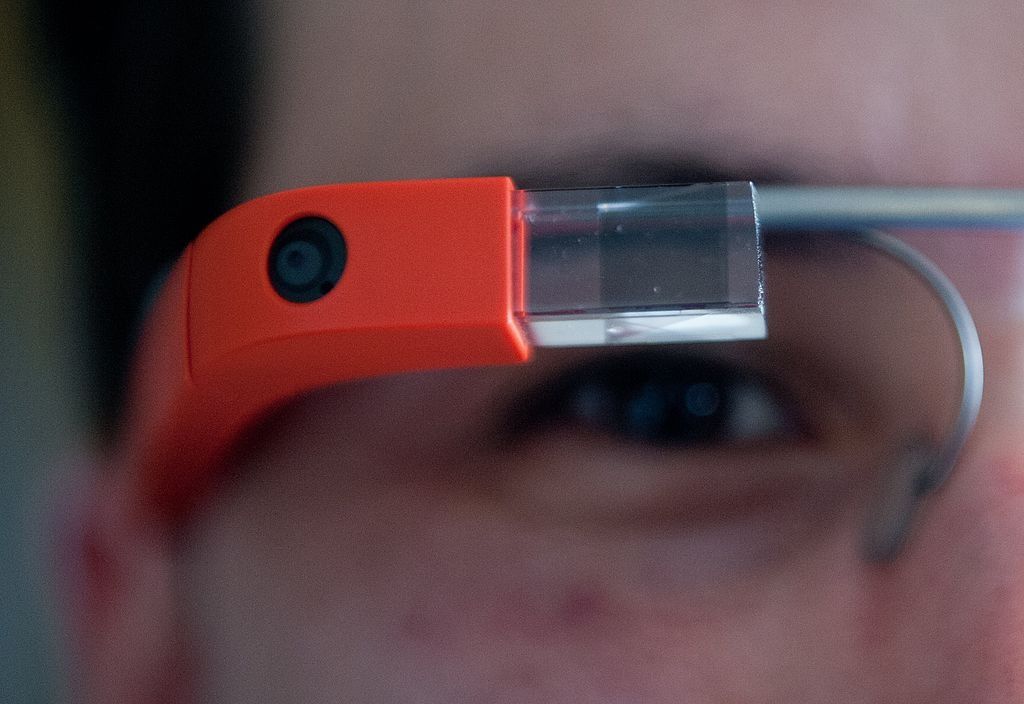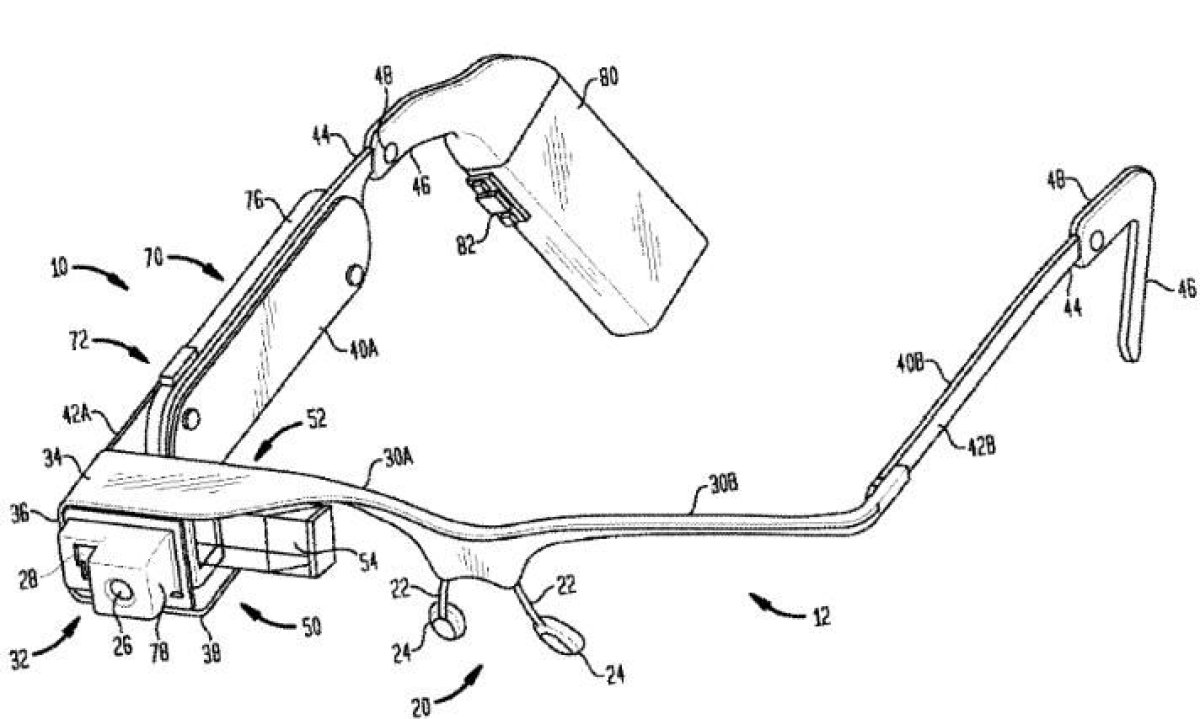
Google Glass may have disappeared from public view over the last year, but Google hasn't given up on the wearable computer just yet.
A new patent has revealed what the tech giant might be planning for the next version of Glass, and it comes with the unusual addition of removable AA batteries.
The patent, published this month by the U.S. Patent and Trademark Office, describes a device similar to that of the original Glass smartglasses, complete with an augmented reality lens and camera.
The new power source may seem like a technological step backwards, however replaceable batteries would mean it would not need to be removed for charging—a key complaint of previous Google Glass headsets.
Public sales of Google Glass were halted in 2015 after the much-hyped smartglasses failed to catch on. The failure was blamed on a lack of applications, as well as the intrusive nature of the head-mounted camera.
The new power source may seem like a technological step backwards, however replaceable batteries would mean it would not need to be removed for charging—a key complaint of previous Google Glass headsets.

Public sales of Google Glass were halted in 2015 after the much-hyped smartglasses failed to catch on. The failure was blamed on a lack of applications, as well as the intrusive nature of the head-mounted camera.
One of the early adopters of Glass, tech blogger Robert Scoble, put the failure down to a combination of issues.
"Google Glass failed because it didn't have enough utility to get over the cost," Scoble said of the $1,500 smartglasses in an onstage interview at the New Orleans Collision Conference earlier this year.
"The camera really sucked, the battery life only lasted 45 minutes [and] the display was really small and low resolution that didn't do anything like what Meta or Magic Leap are doing, which is overlaying virtual images on top of the real world. It did not even try to do that," he said.
Despite the lack of success for the consumer version, Google has continued to work on the technology through its 'Glass at Work' program, which aims to encourage applications for workers in sectors like healthcare and education.
Uncommon Knowledge
Newsweek is committed to challenging conventional wisdom and finding connections in the search for common ground.
Newsweek is committed to challenging conventional wisdom and finding connections in the search for common ground.
About the writer
Anthony Cuthbertson is a staff writer at Newsweek, based in London.
Anthony's awards include Digital Writer of the Year (Online ... Read more
To read how Newsweek uses AI as a newsroom tool, Click here.








